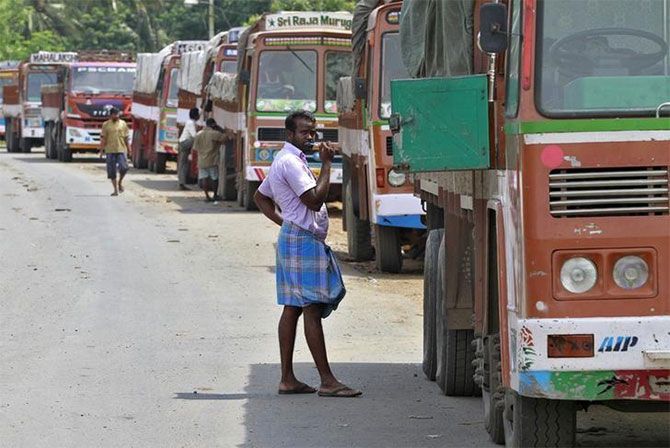A 7:2 majority verdict by the apex court ruled that the tax legislation by the state does not require the consent of the President under Article 304 B of the Constitution

The Supreme Court, on Friday, upheld the constitutional validity of the state legislations with regard to levy of entry tax on goods coming into its territory.
A 7:2 majority verdict by the apex court ruled that the tax legislation by the state does not require the consent of the President under Article 304 B of the Constitution.
The nine-judge bench headed by Chief Justice T S Thakur said though state governments are empowered to impose tax on goods coming from other states there cannot be a discrimination between the goods.
Further the apex court said if a state imposes entry tax on products made within the state it was not empowered to impose higher tax on the identical products entering from other states.
The majority view also left it for the smaller regular bench to adjudicate upon the term 'local area' whether it would refer to the entire state or some pockets within its territory.
Besides the CJI, the majority view was held by Justices A K Sikri, S A Bobde, S K Singh, N V Ramanna, R Banumathi and A M Khanwilkar.
Justices D Y Chandrachud and Ashok Bhushan delivered the separate minority judgement.
Justice Banumathi, who shared the minority view also read out, a separate verdict expressing her disagreement on some of the points by saying that in her opinion the term 'local area' implied the entire territory of the state.
The nine-judge bench had commenced the hearing on July 19 without heeding to the plea of the Centre to wait for the passage of GST Bill in Parliament which was eventually passed in the last session of Parliament.
The bench on September 20 had reserved the judgement after a marathon hearing on the batch of petitions which had been pending since 2002.
The bench had commenced the hearing despite the Centre wanting it to wait till the passage of pending GST (Goods and Services Tax) Bill, which according to it, would have subsumed the tax law under challenge.
The apex court was of the view that the issues related to past levies by the states would be decided in the matter.
Attorney General Mukul Rohatgi had submitted that some arrangement could be made in respect to past demands by the states relating to entry tax after GST Bill, involving a Constitution amendment, was passed by Parliament.
Entry tax is imposed by state governments on movement of goods from one state to another. It is levied by the state that receives goods.
The entry tax provisions of various states was challenged by some companies on the ground that they are against the concept of free trade and commerce under Article 301 (freedom of trade commerce and intercourse with the territory of India) of the Constitution.
During the hearing, the bench had revisited two judgements passed by the apex court in 1960 and 1962 on the issue.
The decision to refer the case to the larger bench came during the hearing of matters filed by companies, including Vedanta Aluminium Ltd, Essar Steel Ltd, Tata Steel Ltd, Adani Enterprises Ltd and the Odisha government.
Jindal Stainless Ltd had brought the matter way back in 2002 when the company had challenged the validity of the Haryana Local Area Development Tax Act, 2000.
The company had challenged the validity of the Act contending that it was violative of Article 301 since it imposed restrictions on trade and is not protected by Article 304.
It was argued that the enactment of the law that levies sales tax on inter-state sales was beyond competence of the state legislature.
Photograph: Sivaram V/Reuters






 © 2025
© 2025